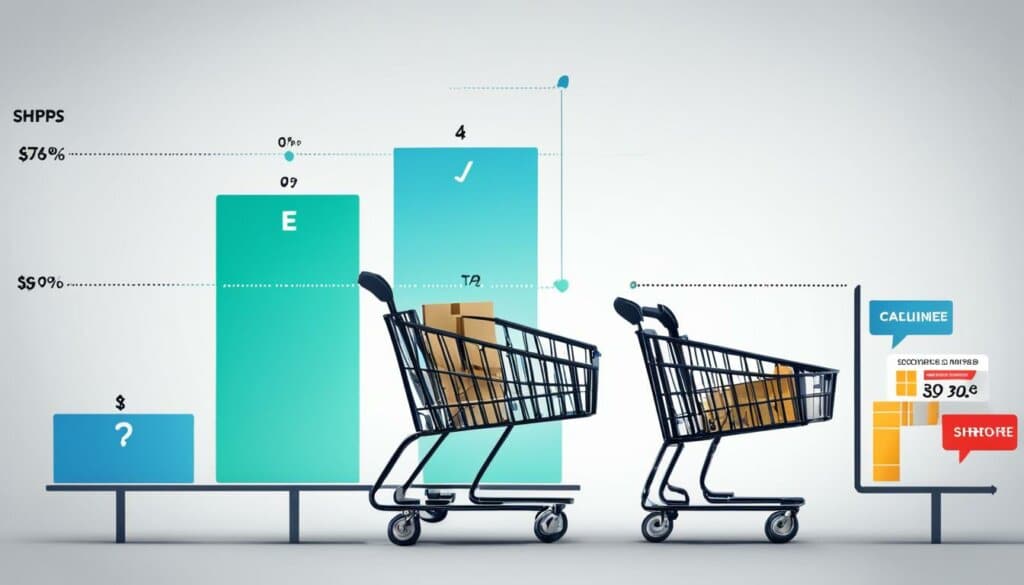Table of Contents
E-commerce offers numerous advantages for businesses in online trade. It provides an alternative to traditional storefronts and allows businesses to streamline operations and expand their global reach. While there are advantages and disadvantages to using e-commerce, understanding the benefits can help businesses make informed decisions about their online presence.
One of the key advantages of e-commerce is the ability to reach a wider audience compared to traditional brick-and-mortar stores. By selling products online, businesses can expand their customer base and increase sales potential. E-commerce refers to online business transactions, such as selling products, that occur on websites. It allows businesses to have a virtual storefront where they can display products with titles, pictures, and descriptions.
Understanding E-commerce and Its Advantages
E-commerce, short for electronic commerce, refers to business transactions conducted online, specifically on websites. It provides businesses with a virtual storefront where they can showcase their products with engaging titles, appealing pictures, and informative descriptions. One of the significant advantages of e-commerce is the ability to reach a wider audience compared to traditional brick-and-mortar stores. By embracing online sales, businesses can expand their customer base and unlock the potential for increased sales.
Through e-commerce, businesses can transcend physical boundaries and tap into a global audience. This allows them to break free from the limitations imposed by geographical locations and reach customers from around the world. A wider audience means a greater potential for sales and business growth.
Advantages of E-commerce
Let’s delve into the advantages of e-commerce in more detail:
- Expanded Reach: With e-commerce, businesses can break free from the confines of a physical location and connect with customers beyond their immediate vicinity. Online sales open up a vast market and provide access to a global audience.
- 24/7 Availability: Unlike traditional stores with fixed operating hours, e-commerce enables businesses to be open and accessible round the clock. Customers can browse and make purchases at their convenience, enhancing the shopping experience.
- Virtual Storefront: E-commerce websites serve as virtual storefronts where businesses can display their products with attractive visuals and detailed descriptions. This allows customers to get a comprehensive understanding of the offerings and make informed purchasing decisions.
- Personalized Marketing: E-commerce platforms gather valuable customer data, including preferences, purchase history, and browsing behavior. This information enables businesses to create personalized marketing campaigns, tailor-made to individual customer needs and interests.
- Cost-Effective: Establishing and maintaining an e-commerce website can be more cost-effective than setting up and operating a physical store. Businesses can save on expenses such as rent, utilities, and staff, redirecting those resources towards other areas of growth.
Quote:
“E-commerce has revolutionized the way businesses operate. It provides a platform to reach a wider audience, boosts sales potential, and opens up unprecedented growth opportunities in the digital realm.” – Name Surname, CEO of E-commerce Success
Comparison of E-commerce and Traditional Retail:
| E-commerce | Traditional Retail | |
|---|---|---|
| Reach | Global audience | Local or regional audience |
| Sales Availability | 24/7 | Restricted operating hours |
| Overhead Costs | Lower | Higher |
| Customer Data | Rich and trackable | Limited and difficult to collect |
| Marketing | Personalized and targeted | Broad and less targeted |
As the table illustrates, e-commerce offers distinct advantages over traditional retail, enabling businesses to tap into global markets, operate round the clock, reduce costs, and leverage data-driven marketing strategies.
E-commerce presents an array of benefits that empower businesses to thrive in the digital era. By embracing online sales and harnessing the advantages it offers, businesses can unlock new avenues for growth, connect with a wider audience, and nurture customer relationships.
Cost-effectiveness and Scalability of E-commerce
E-commerce offers businesses a cost-effective and scalable solution compared to traditional physical storefronts. By embracing e-commerce, businesses can reduce expenses associated with commercial real estate, rent, utilities, and security. Instead of investing in brick-and-mortar establishments, businesses can channel their resources towards building an affordable e-commerce website and investing in web hosting and marketing.
Scalability is a key advantage of e-commerce. Unlike physical stores that require larger spaces to accommodate growth, businesses can expand their online presence without the need for additional physical space. This flexibility is especially beneficial for businesses experiencing rapid growth, as they can easily scale up their e-commerce operations to meet increasing demand.
Overall, e-commerce provides a cost-effective and scalable option for businesses looking to establish an online presence. By eliminating the need for a physical storefront, businesses can save on expenses and redirect their resources towards building a robust e-commerce platform. With its scalability, e-commerce allows businesses to adapt to growth without the constraints of physical space.

In addition to cost-effectiveness and scalability, e-commerce offers a range of other advantages for businesses and consumers. The increased reach and customer data provided by e-commerce enable businesses to target a global audience and personalize their marketing efforts. For consumers, e-commerce offers convenience, product comparison, and 24/7 shopping access. These benefits make e-commerce a vital component of the modern business landscape.
Increased Reach and Customer Data in E-commerce
E-commerce opens up new possibilities for businesses to expand their reach and tap into a global audience. Unlike traditional brick-and-mortar stores, which often have limited foot traffic and a local customer base, e-commerce websites offer the potential to attract customers from all corners of the world. This increased reach allows businesses to access a larger pool of potential customers and boost their sales.
But it’s not just about reaching a global audience. E-commerce also provides businesses with valuable customer data that can be used to personalize marketing strategies and enhance the overall customer experience. By analyzing customer buying habits, preferences, and demographic data, businesses can gain insights into what their customers want and tailor their marketing efforts to meet those needs.
With this information, businesses can create targeted and personalized marketing campaigns that resonate with individual customers. Personalized marketing allows businesses to deliver relevant content and offers to their audience, increasing the chances of conversion and fostering customer loyalty. By understanding customer data, businesses can craft compelling messages, recommend relevant products, and even provide customized discounts or promotions.
This level of personalization not only improves customer satisfaction but also drives business growth and revenue. According to a study by Epsilon, 80% of consumers are more likely to make a purchase when a brand offers a personalized experience. Furthermore, personalized marketing can lead to a significant increase in customer lifetime value and repeat purchases.
For example, let’s say an online clothing retailer analyses customer data and discovers that a particular segment of their audience prefers eco-friendly and sustainable fashion. Armed with this information, the retailer can create targeted email campaigns featuring their sustainable clothing line and offer personalized discounts to customers who align with this preference. This not only enhances the shopping experience for those customers but also demonstrates that the retailer understands their values and preferences.
In conclusion, e-commerce provides businesses with the opportunity to expand their reach globally while also leveraging customer data to deliver personalized marketing experiences. By capitalizing on these advantages, businesses can not only increase sales but also foster strong customer relationships and loyalty. The integration of technology and data-driven insights is revolutionizing marketing in the digital age, and e-commerce is at the forefront of this transformation.
Consumer Benefits in E-commerce
In addition to the advantages it offers businesses, e-commerce also provides significant benefits for consumers. These benefits include:
1. Easy Product Comparison
One of the key advantages of e-commerce for consumers is the ability to easily compare products. With just a few clicks, customers can browse multiple websites to find the best deals, read reviews, and evaluate the quality and features of different products. This empowers consumers to make informed decisions and choose the product that best meets their needs and preferences.
2. Convenience and Accessibility
E-commerce provides unparalleled convenience and accessibility for consumers. With 24/7 shopping availability, customers have the flexibility to shop at any time that suits them, whether it’s early in the morning or late at night. There are no time constraints or geographical limitations, allowing consumers to easily browse and purchase products from the comfort of their own homes or even on the go.
3. Wider Variety of Products
When shopping online, consumers have access to a vast selection of products from different brands and retailers. E-commerce platforms showcase a wide range of options, allowing customers to explore and discover new products that may not be available in local stores. This variety gives consumers the freedom to find unique and specialized items, ensuring they can find exactly what they are looking for.
4. Personalized Shopping Experience
E-commerce platforms leverage customer data and advanced algorithms to offer personalized shopping experiences. By utilizing browsing and purchase history, as well as preferences and demographic information, e-commerce websites can provide tailored product recommendations, discounts, and promotions that cater to each individual’s interests and needs. This personalized approach enhances the overall shopping experience and increases customer satisfaction.
“E-commerce allows consumers to access a wide range of products, compare prices and features, and enjoy the convenience of shopping from anywhere and at any time.”
To further illustrate the consumer benefits of e-commerce, consider the following table:
| Consumer Benefits | Description |
|---|---|
| Product Comparison | Easily compare products, prices, and reviews from multiple websites. |
| Convenience | 24/7 shopping availability, eliminating time and location constraints. |
| Wide Product Variety | Access to a diverse selection of products from various brands and retailers. |
| Personalized Shopping Experience | Customized product recommendations and tailored promotions based on individual preferences and browsing history. |
As seen in the table, e-commerce offers consumers a range of benefits that enhance their shopping experience and provide greater convenience and choice. With the ability to compare products, shop at any time, access a wide range of products, and enjoy personalized recommendations, consumers can make informed purchasing decisions and enjoy a seamless online shopping journey.

Conclusion
In conclusion, e-commerce offers numerous advantages for businesses and consumers in the online business landscape. Leveraging e-commerce allows businesses to streamline operations, significantly reducing costs and increasing efficiency. By eliminating the need for physical storefronts, businesses can focus on enhancing their online presence to expand their global reach, reaching customers beyond geographical limitations.
E-commerce also presents personalized marketing opportunities, enabling businesses to analyze customer data to create tailored marketing strategies. This personalized approach enhances customer satisfaction and builds loyalty.
For consumers, e-commerce provides undeniable benefits such as convenience and a wide product selection. With e-commerce, customers can compare products effortlessly, make informed purchasing decisions, and enjoy 24/7 shopping from the comfort of their own homes. This convenience enhances the overall shopping experience.
Despite challenges and potential drawbacks, the advantages of e-commerce make it a vital component of online business. Embracing e-commerce empowers businesses to maximize their potential for success, elevate customer satisfaction, and expand their global reach. As the digital landscape continues to evolve, e-commerce will undoubtedly play a pivotal role in shaping the future of online trade.
FAQ
What is e-commerce?
E-commerce refers to online business transactions, such as selling products, that occur on websites.
What are the advantages of e-commerce for businesses?
E-commerce allows businesses to streamline operations, expand their global reach, and have a virtual storefront with wider audience reach compared to traditional brick-and-mortar stores.
How does e-commerce benefit businesses in terms of cost-effectiveness and scalability?
E-commerce offers cost-effective solutions by eliminating the need for physical store expenses like rent, utilities, and security. It also allows for scalability as businesses can grow their online presence without the need to move to a larger physical space.
What opportunities does e-commerce provide for reaching a global audience and personalized marketing?
E-commerce allows businesses to attract customers from all over the world to their websites, resulting in expanded reach and personalized marketing based on customer data.
How does e-commerce benefit consumers?
E-commerce provides consumers with easy product comparison, convenience by allowing shopping from anywhere and at any time, and a wide product selection.







